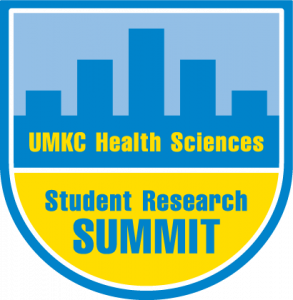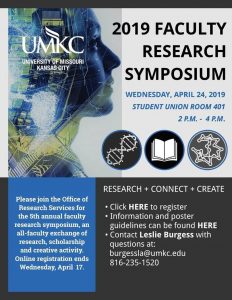- 177 new awards totalling $28,855,974 (as of 4/4/19 in FY19)
- 306 new proposals (as of 4/4/19 in FY19) )
- 15 invention disclosures and 11 patents (FY19 to date)
- IRB Turn-around Time
Dear Colleagues:
We are writing to bring to your attention a matter of great importance for the biomedical research community. As leaders of institutions that are currently receiving funding from the National Institutes of Health, we are asking for your assistance in combatting a serious problem in our workforce that threatens the health of our enterprise. Late last month, NIH leadership released an important statement outlining actions NIH is taking to become part of the solution to address sexual harassment in science. This statement was intended to send a clear message to the institutions we are funding and researchers who lead the research that sexual harassment is simply unacceptable. NIH has not and will not just look the other way when accusations come to our attention. We are now sending you this letter to ask our grantee institutions to intensify your own efforts in partnering with us to address this serious problem.
We recognize sexual harassment is about power. The goal of the perpetrator, most commonly but not exclusively a man, is to objectify, exclude, demoralize, diminish, and coerce the victim, most commonly a woman, to exert power over her. It’s morally indefensible, it’s unacceptable, and it presents a major obstacle that is keeping women from achieving their rightful place in science.
The 2018 National Academies report on sexual harassment of women in science shined a troubling light on the prevalence of sexual harassment in medicine and biomedical science. The report also stated that “federal agencies may be perpetuating the problem of sexual harassment.” In recognition of this, NIH is committed to becoming part of the solution and taking appropriate action toward ensuring a safe working environment conducive to high-quality research. We have recently established a Working Group of the NIH Advisory Committee to the Director (ACD), which is charged with tackling the underlying culture that enables sexual harassment and anticipates swiftly assisting the ACD to develop recommendations to that end.
But NIH cannot tackle this problem alone. Through this letter, NIH is clarifying expectations that institutions and investigators ensure a safe workplace and keep the agency well-informed. We expect that institutions will embrace their responsibilities to end all harassment in their own scientific workplace. To this end, we are reminding you that:
We thank you for your support in our efforts to assure that all NIH-funded work occurs in an environment that is safe, that is free from harassment, and that is conducive to our critically important efforts to conduct high-quality research.
Sincerely,
Francis S. Collins, M.D., Ph.D., Director, NIH
Lawrence A. Tabak, D.D.S., Ph.D., Principal Deputy Director, NIH
Carrie Wolinetz, Ph.D., Acting Chief of Staff, and Director, Office of Science Policy, NIH
Michael S. Lauer, M.D., Deputy Director for Extramural Research, NIH
Hannah A. Valantine, M.D., Chief Officer for Scientific Workforce Diversity, NIH

You can now request your own iThenticate login. The Pre Award Services department of the Office of Research Services offers iThenticate, a web-based software platform used by the NSF, NIH, CDC, Dept. of Energy and high impact factor journals for plagiarism detection.
Read more about iThenticateRequest a log in

April 17
Learn more

April 24 | 2 – 4 p.m.
Learn more
May 3
Learn more Submit

As a Senior Post-Award Administrator my focus is customer service. I accomplish this by establishing and maintaining good relationships with all stakeholders. I set realistic expectations to give them assurances that their needs are heard and will be met timely. Always asking for their input maximizes successful outcomes to reflect the highest professionalism of our department.
I received my BSBA degree in Accounting from Rockhurst University. My introduction to grant awards came when I worked as the Grants Accountant at the Kansas City Area Transit Authority. From that position I was promoted to General Accounting Supervisor. I spent thirteen years with KCATA. From there I spent four years in corporate America at Great Plains Energy or what’s better known to the public as KCPL. I was their Generation Accountant and Delivery Accountant. I came to the University in September 2005 with ATTC. It was in February 2006 that I began my journey in Research Administration at the Office of Sponsored Programs.
From my heavy accounting background, I love the versatility. Research Administration is ever changing. Whether I’m working on federal awards, or with public/ private corporations, not for profits, or various universities, domestic or foreign institutions; I’m continuing to learn and grow professionally. Those transitional skills that I’ve gleaned from my prior work experiences mesh perfectly with Research Administration. Instead of the monthly accounting cycle or as I call it “the accounting groundhog days”, I’m challenged daily in the areas of compliance, contract terms, proper internal controls and subcontract agreements. Work life is never dull.
I value my relationships with family and friends. I enjoy entertaining and cooking. I consider myself a novice foodie. I enjoy exercise and maintaining a healthy life balance. No, I’m not a fanatic – just working to stay young at heart and in body. I’m fascinated by what our city has to offer – theater, movies, restaurants and music. Lately, I’m obsessed about learning to paint and crafts. Loud cheers can be heard from my home all year long because I love sports. I’m a big baseball, college basketball and football fan.